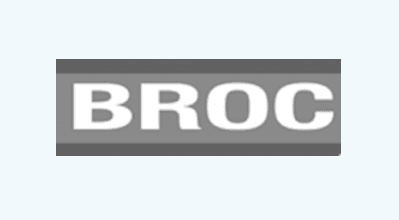Animal Complaints
In the case that you wish to make a complaint about a neighbour’s pet, there are a number of options you can pursue:
Firstly, it is important that you try to resolve the problem with your neighbour directly. By calmly discussing your concerns, often you can easily solve the problems you are experiencing without damaging neighbourly relationships. More often than not, your neighbour might not be aware that their pet is causing a nuisance. By amicably talking about the problem, you may be able to bring awareness of the situation and in many cases, they are happy to take steps to rectify the problem.
If this approach does not work, you may contact Inverell Shire Council on (02) 6728 8200 to report the problem. Council will notify the owner that a complaint has been received about their pet, and will ask the owner to take steps to alleviate the problem.
Should a pet repeatedly make noise, damage other people’s property or chase people, animals or vehicles, Council can issue a Nuisance Order.
BARKING DOGS
Why do dogs bark?
Barking is a natural way in which dogs communicate. It can be a sign of many things from playfulness to danger.
Other times dogs bark because they are:
- Chained to a fixed point without room for adequate movement;
- Bored due to a lack of exercise;
- Being provoked;
- Competing with other dogs or animals;
- Not properly trained;
- Lonely, sick, hungry, or generally neglected.
These causes for a dog to bark should not be part of a dog’s life. As well as indicating possible distress of the dog, excessive barking is distressing for people living nearby.
Curing the barking habit
- Provide enough space for your dog to move freely within your enclosed backyard. A dog shouldn’t be left on a fixed chain for a long period of time, as this contributes to savagery and often increases the occurrence of barking and other problems. If your dog needs to be chained, it should be a running chain;
- Exercise your dog regularly;
- Give your dog a space of its own, a sanctuary where it feels safe. This could be a ventilated and waterproofed kennel or an indoor area. A dog kept in an enclosed area at night will not usually bark and annoy neighbours;
- Give your dog a balanced and varied diet. The evening meal should be given between 6pm and 9pm;
- Dogs suffer from a range of common canine ailments including fleas, worms, cuts and bruises. Daily examination, regular baths and veterinary attention (when necessary) will help ensure that your dog does not suffer from health problems.
If after trying the above suggestions your dog continues to bark excessively, there are a number of other things you may try, such as:
- Remove direct line-of-sight between the dog and people or animals by erecting a fence, wall or other barrier;
- Take the dog to a recognised animal trainer to help discourage bad habits;
- Provide noise insulation for the kennel;
- Inverell Shire Council also hires Citronella (Barking) Collars to assist in the management of barking problems. The current cost for hire of a Citronella Collar is $100 for the deposit and $33 for a 3 week hire of the collar. For further information please contact us on (02) 6728 8288.
Dangerous / Menancing Dogs
A dangerous / menancing dog is one which attacks a person or animal without being provoked. In extreme circumstances, a local council or court can declare a dog dangerous.
Dangerous dogs must be:
- Kept in child proof enclosures that are signposted with warning signs;
- Leashed and muzzled in public;
- Controlled by an adult over the age of 18;
- Desexed.
Restricted Dogs
Owners of restricted dogs are obliged to comply with the same responsibilities (set out above) as owners of dangerous dogs.
The following dogs are restricted dogs for the purposes of the Companion Animals Act:
- American Pit Bull Terrier or Pit Bull Terrier
- Japanese Tosa
- Dogo Argentino
- Fila Brasiliero
- Any dog declared by a Council to be a restricted dog
Control Requirements
Owners of these dogs must comply with the following control requirements:
- While the dog is on the property, it must be kept in a child-proof enclosure;
- The dog must not be at any time under the sole charge of a person under the age of 18;
- One or more signs must be displayed on the property showing the words “Warning Dangerous Dog” in letters clearly visible from the boundary of the property on which the dog is ordinarily kept;
- When the dog is away from the property where it is ordinarily kept, the dog must be under the effective control of a competent person by the means of an adequate chain, cord or leash and have a muzzle securely fixed on its mouth in such a manner that will prevent the dog from biting any person or animal;
- The dog must not be sold to a person under the age of 18;
Council Notifications
The owner must notify the Council of the area in which the dog is ordinarily kept and of the following matters:
- That the dog has attacked or injured a person or animal (other than vermin) within 24 hours of the attack;
- That the dog is missing within 24 hours after first noticing its absence;
- That the dog has died;
- That the ownership has changed within 24 hours;
- That the dog is no longer kept within the area of the Council and is giving notice as soon as is practicable;
- That the dog ordinarily kept at a different location within the Council has changed location and is giving notice as soon as is practicable.
An Owner who does not comply with any of the above requirements is guilty of an offence.
Should you require any further information please contact the Inverell Shire Council on (02) 6728 8288 or on council@inverell.nsw.gov.au.
Last modified: 11-Jan-2021









